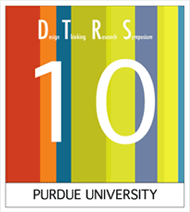Location
United States
Description
Design teaching in many disciplines relies on feedback as a primary way for students and instructors to communicate. Our work focused on identifying feedback types in three different design disciplines (dance choreography, industrial design, and mechanical engineering) and analyzing how those feedback types encouraged students to take convergent or divergent paths with their design ideas. We then compared feedback types and encouragement of convergence or divergence across the three disciplines. Our findings showed many common types of feedback used across the three disciplines, regardless of variance in context and expectations. However, the findings also revealed a high frequency of feedback suggesting convergence or not pushing in either direction. While design processes aim to identify the most promising solution through a series of convergence steps, divergence is equally critical throughout the entire process, and this work suggests a consideration of when and how to integrate feedback supporting divergence throughout design processes.
Keywords
ideation, divergence, convergence, design processes
Presentation slides
DOI
10.5703/1288284315940
Influences of feedback interventions on student concept generation and development practices
United States
Design teaching in many disciplines relies on feedback as a primary way for students and instructors to communicate. Our work focused on identifying feedback types in three different design disciplines (dance choreography, industrial design, and mechanical engineering) and analyzing how those feedback types encouraged students to take convergent or divergent paths with their design ideas. We then compared feedback types and encouragement of convergence or divergence across the three disciplines. Our findings showed many common types of feedback used across the three disciplines, regardless of variance in context and expectations. However, the findings also revealed a high frequency of feedback suggesting convergence or not pushing in either direction. While design processes aim to identify the most promising solution through a series of convergence steps, divergence is equally critical throughout the entire process, and this work suggests a consideration of when and how to integrate feedback supporting divergence throughout design processes.


Comments
This conference presentation was developed into a book chapter that was published in “Analyzing Design Review Conversations,” edited by Robin S. Adams and Junaid A. Siddiqui (2016, Purdue University Press), which can be found here:http://www.thepress.purdue.edu/titles/analyzing-design-review-conversations.